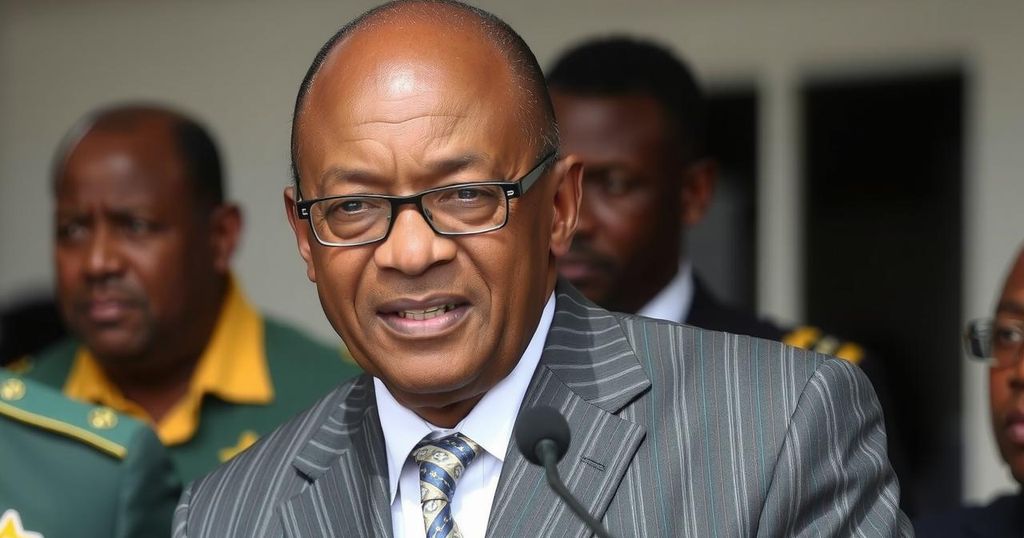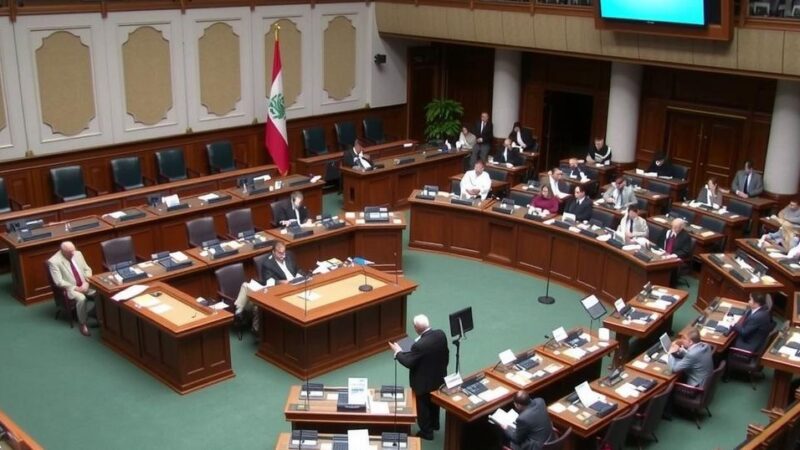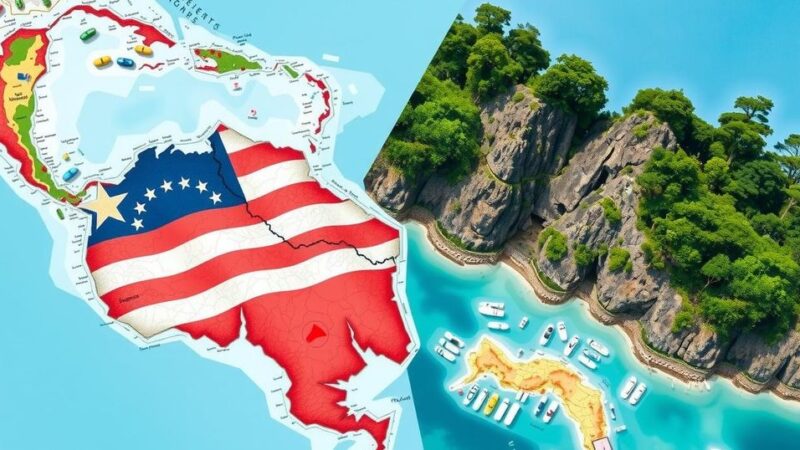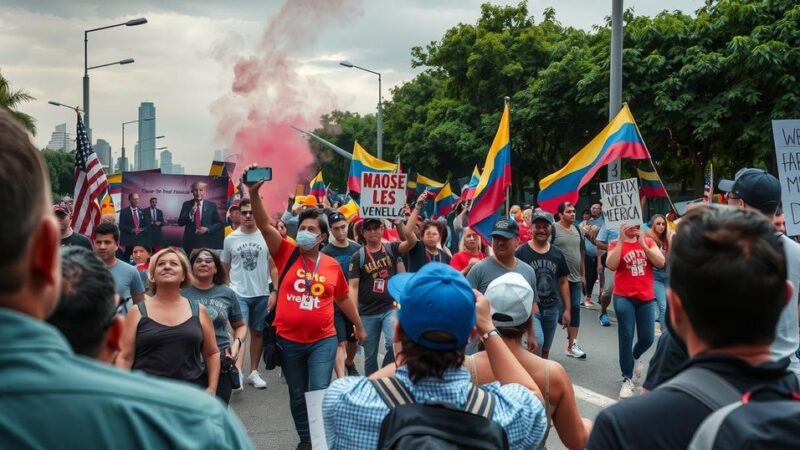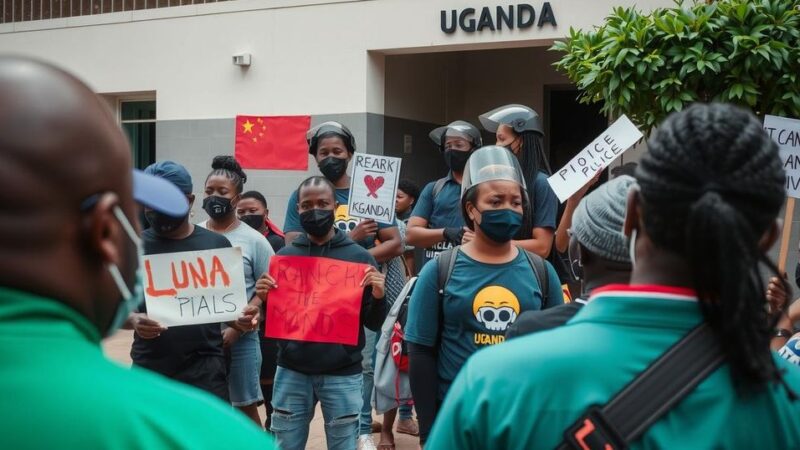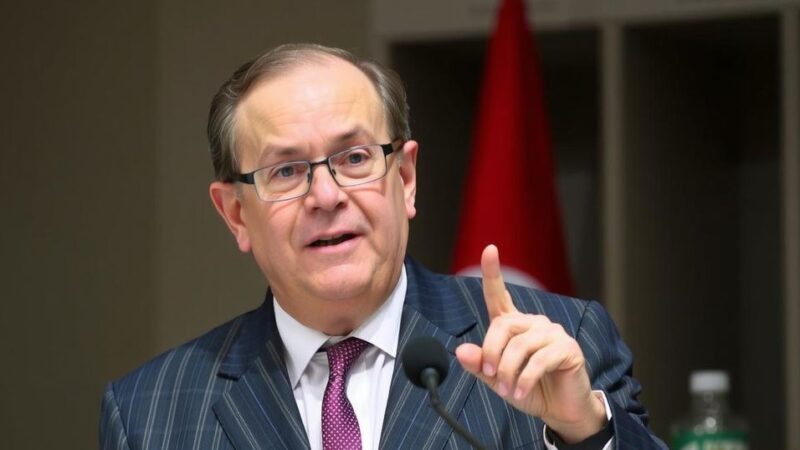Venâncio Mondlane, Mozambique’s opposition leader, has returned from exile after claiming the October elections were fraudulent. He is ready to negotiate with the government amidst ongoing protests and violence, where over 280 people have reportedly died. His arrival coincides with the impending inauguration of Daniel Chapo from the ruling Frelimo party, against a backdrop of accusations of vote rigging and targeted killings of opposition figures.
Mozambique’s opposition leader, Venâncio Mondlane, has made his return to the nation following a period of self-imposed exile, which he undertook amid accusations of electoral fraud during the October elections. Upon his arrival at Maputo’s international airport, Mondlane appeared to engage in prayer, immediately surrounded by a chorus of enthusiastic supporters. He expressed a commitment to dialogue with the government, emphasizing the importance of addressing the aftermath of the elections, which he claims were unjustly stolen from him.
Following the presidential and parliamentary elections held on October 9, national unrest has erupted, with Mondlane’s party, Podemos, asserting they were the rightful victors of the electoral process. Tragically, reports state that over 280 individuals have been killed by security forces during the ensuing protests, a situation documented by local watchdog organization, the Centre for Public Integrity.
As he addressed journalists, Mondlane contended, “I had to break this narrative that I was absent because of my own will.” He further stated his intent to negotiate with the government, making it clear that he is prepared for discussions regarding the ongoing tensions and protests. The opposition leader articulated a sense of duty to defend his supporters, who he characterized as victims of a “silent genocide.”
In accordance with the results announced by the country’s top court on December 23, 2022, Daniel Chapo from the ruling Frelimo party is set to take office as president on January 15, 2023, after being declared the winner with 65.2% of the vote. Mondlane’s allies continue to express deep dissatisfaction, triggering further protests following the court’s ruling that they secured only 24.2%.
Election observers have raised concerns regarding electoral integrity, reporting instances of vote rigging, though some analysts suggest that Frelimo may still have prevailed without manipulation. Former President Felipe Nyusi reached out for negotiations with Mondlane in November 2022, with reported communication occurring between the two in December.
Previously, Mondlane had feared for his life, resulting in his departure from Mozambique. The recent killings of two of his close associates, Elvino Dias and Paulo Guambe, accentuate a troubling trend of targeted violence against opposition figures, with no arrests made in those cases. Mondlane’s return marks a pivotal moment in Mozambique’s political landscape, as he seeks to confront these dynamics and advocate for his supporters’ rights.
The political climate in Mozambique has been fraught with tension, particularly following the general elections on October 9, 2022. The elections have been marred by accusations from opposition parties, notably Venâncio Mondlane’s Podemos, that the polls were rigged in favor of the ruling Frelimo party. Historical context reveals Frelimo has maintained power since Mozambique’s independence in 1975. Amid significant opposition protests, escalating violence has led to numerous casualties, further complicating the political discourse and calls for accountability and reform.
The return of Venâncio Mondlane to Mozambique symbolizes both a potential turning point for political dialogue and a confrontation with the violence and unrest stemming from the recent elections. With the incoming president Daniel Chapo preparing to assume office, the calls for negotiation and dialogue may prove essential in addressing the grievances of opposition supporters and restoring stability within the country. Mondlane’s assurances of his presence and readiness for talks could foster a more open political environment following a period of significant turmoil.
Original Source: www.theguardian.com

